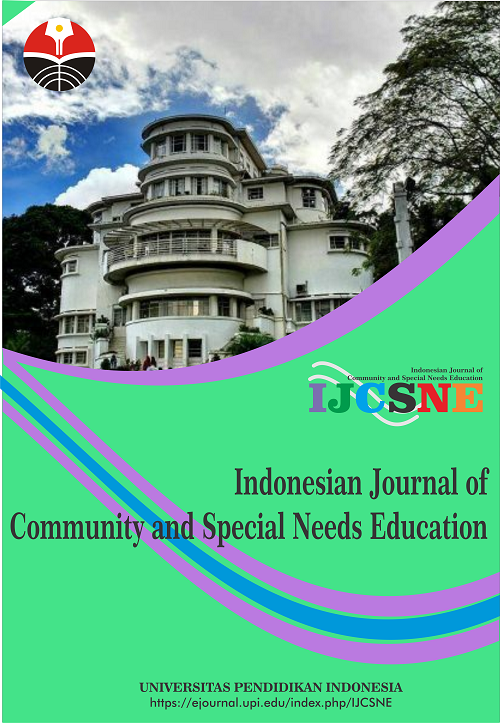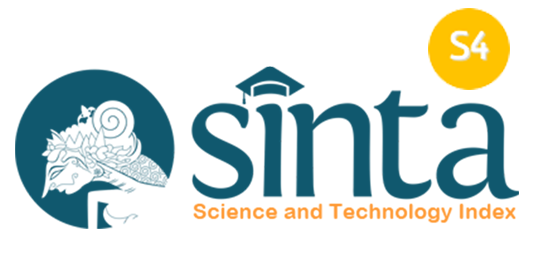Handwashing Ability Assessment for Students with Intellectual Barriers
Abstract
Keywords
Full Text:
PDFReferences
Dajaan, D. S., Addo, H. O., Ojo, L., Amegah, K. E., Loveland, F., Bechala, B. D., and Benjamin, B. B. (2018). Hand washing knowledge and practices among public primary schools in the Kintampo Municipality of Ghana. Int J Community Med Public Health, 5(6), 2205-2216.
Darmayani, S., Askrening, A., and Ariyani, A. (2017). Comparison the number of bacteria between washing hands using soap and hand sanitizer as a bacteriology learning resource for students. JPBI (Jurnal Pendidikan Biologi Indonesia), 3(3), 258-265.
Maryanti, R., Hufad, A., Sunardi, and Nandiyanto, A.B.D. (2020). Understanding Covid-19 particle contagion through aerosol droplets for Students with special needs. Journal of Engineering Science and Technology, 15(3), 1909-1920.
Wijayanti, N. A. (2017). Implementation of Role-Playing Method in The Hygiene Hadith Learning Toward Early Children’s Healthy Behavior of Group B in Dabin Aggrek Gunungpati Semarang. BELIA: Early Childhood Education Papers, 6(2), 126-130.
DOI: https://doi.org/10.17509/ijcsne.v1i1.41353
Refbacks
- There are currently no refbacks.
Copyright (c) 2021 Universitas Pendidikan Indonesia

This work is licensed under a Creative Commons Attribution-ShareAlike 4.0 International License.















